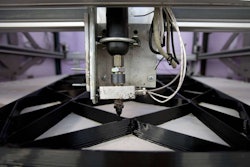Process manufacturing companies, whether they be chemical companies, food companies or other segments are most successful in an environment of innovation — whether this be in new products, new technologies or even new ways of going to market.
One big driver is that consumer tastes and expectations are continually evolving. Never before has there been a greater demand for information about products being purchased. Whether it’s knowing the environmental impacts (e.g., CO2 emissions) of manufacturing a particular chemical product, awareness of genetically free organisms in food, or the country of origin. Both consumers and business customers are taking a broader look at all aspects of what they're buying and companies that can meet these expectations are seeing the results in increased sales.
Addressing these new needs requires greater investments in R&D and likely the processing and packaging equipment, too. This is not just an internal issue, though. It also depends on improved visibility and communication with suppliers and customers which ultimately places a greater demand on the data process manufacturing companies need to manage. Add to this the continually changing, and sometime conflicting, regulations and reporting requirements globally and the challenges can become unmanageable without significant changes in IT infrastructure.
Frankly the complexities of most process manufacturers continue to grow and the IT solutions that were selected just a few years ago, whether they be ERP, Supply Chain, Quality Management or others, are often not up to the tasks required to be as agile. So companies find themselves forced to either plod along with additional manual activities or trying to find time to upgrade their existing solutions.
The reality of this was shown in a June survey by Gatepoint Research of chemical companies in the U.S. There results indicated that their current ERP system was holding them back with 45 percent stating they needed better business intelligence and 25 percent saying they were struggling with poor planning and scheduling tools.
The question is: How do you get to a point where your IT solutions can be a catalyst for growth versus a hindrance? The idea of a major IT transitional investment though, such as a new ERP solution, may seem too much for a company to take on - both financially as well as the time required for implementation. When the business already feels swamped, why would a company purposely burden itself with another project?
Almost any seasoned executive has gone through an ERP implementation and while they likely recognized significant business value, the experience is not something they are in a hurry to repeat. They most likely experienced a project that took longer than expected, cost more than was estimated and ultimately required a number of modifications to meet their specific business needs. In the Gatepoint Research survey, 37 percent of respondents indicated that they needed an easier upgrade process for their current ERP, which explains why companies may be lacking the functionality they need….they are on an old release. Even knowing this, companies question the added value to their businesses of going through an upgrade process.
Well, maybe it’s time to take the leap to the cloud with a solution that is designed for the specific industry you are competing in.
The specialization of ERP and extended solutions has improved significantly over the last few years. The idea of a 'one-size-fits-all manufacturing' solution has been replaced by a specific ‘chemical ERP solution’ or ‘food and beverage ERP solution’ with optional modules to address unique requirements for quality management, traceability, product lifecycle management, complex scheduling and a myriad of other challenges. In order to increase profitability and maintain growth, modern businesses need these tools to help them rethink the way they operate and embark on bold new strategies.
Functionality, though, is only one part of the story. The second is greater flexibility to scale as a business grows, as well as automated upgrades to insure companies always have the latest technology. All of this helps overcome the constraint that has prevented many manufacturers from moving to a new solution which is the perceived high capital cost and the substantial disruption to their business. These have both been overcome with the introduction of industry-specific cloud solutions that have a purpose-built ERP functionality at their core. These cloud deployments are gaining momentum and more process manufacturers are considering the benefits that can be derived from Software-as-a-Service (SaaS) rather than on-premise implementations.
Of course, with any substantial investment in IT, selecting the right vendor is often the most important factor to consider. Here are some questions to ask about a potential cloud solution.
Does this solution address the unique industry requirements? Any cloud solution should offer flexible and industry-specific functionality that reduces the need for customizations. This goes deeper than just process manufacturing as the needs of dairy are very different than a paint and coatings company. Can the solution manage those important variables such as short shelf life, attributes, yield and catch-weight?
Will it improve responsiveness? Over time, many companies struggle with the lack of visibility across their business due to numerous separate applications. A new solution should provide all the functionality that is critical to a business within a unified suite including capabilities for forecasting and demand planning, tracking and traceability and formula management. By having a comprehensive solution in the cloud, companies can be much more responsive to customer and business needs.
Is it secure? To protect data from compromise, companies should always confirm that the solution follows industry best practices and protocols. Having a dedicated business unit that specializes in cloud implementation and deployment is a good indication of a vendor's commitment to security. Their consultants should also demonstrate extensive experience with SaaS-based implementations.
Are pricing options flexible? A major advantage of cloud solutions is subscription-based pricing that helps companies avoid upfront expenditure. It is even more valuable if the solution has the flexibility to add additional functionality and users to meet business growth and increased demand. Having a per-user-per-month pricing model increases transparency for cost projections and avoids rigid contracts that may become outdated as the business evolves.
Market leading companies are moving critical applications to the cloud. Process manufacturers that do that same will enjoy immediate savings and faster ROI, at the same time as enhancing their efficiency through industry-specific functionality. They'll be running the very latest technology within a flexible IT environment that offers scalability to meet business growth — while being well placed to successfully complete on a global stage.
Mike Edgett is an Industry & Solution Strategy Director, Process Manufacturing at Infor






















